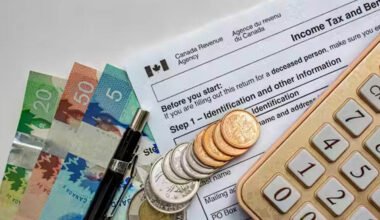Opening a savings account is a foundational step in achieving financial success. Free savings accounts feature minimal requirements and little to no maintenance fees, helping you maintain your balance. They’re also accessible and make it easy to save money consistently and retrieve it when in need. Here are some ways a free savings account can help you save for your future:
Low Fees
Opening a free savings account comes with no extra costs and does not require visiting a brick-and-mortar premise. Banks usually make free accounts accessible to everyone, offering low minimum opening deposits. The deposit remains in your balance, rather than functioning as a start-up fee. Low costs make it easy to save without financial strain, allowing you to begin saving for short-term or specific goals, such as vacations and down payments.
Many standard bank accounts feature monthly maintenance fees and minimum balance requirements. Over time, these fees can deplete your balance if you do not regularly deposit funds. Free savings accounts have no maintenance fees, so your savings stay in your account. They also do not feature minimum balance requirements, so you can withdraw funds without penalty, which is beneficial when emergencies arise. While CDs and investments may help you reach long-term savings goals, they usually have penalties for withdrawals, decreasing interest earnings. A savings account allows you to withdraw money at any time and supports fund transfers between accounts.
Enhanced Security
Using a free savings account allows you to set aside money in a secure place. Most accounts are insured by government institutions, such as the Federal Deposit Insurance Corporation (FDIC). Your money will be protected up to a specified limit, even if the bank goes out of business.
Banks also incorporate enhanced security features, including advanced encryption, access restriction, and withdrawal whitelisting. This helps prevent non-account holders from authorizing withdrawals. You can use savings accounts to keep emergency funds separate from your daily spending. Saving for emergencies protects you from unplanned debt when unexpected expenses arise.
Compound Interest
Savings accounts earn compound interest over time, increasing your balance. Even the smallest balances earn interest because free accounts do not feature monthly maintenance deductions. The passive income from interest may add up to significant savings if you save for years. Some banks have high-yield savings accounts with better interest rates, allowing you to earn money more quickly. Avoid unnecessary withdrawals to grow your balance and earn more from interest.
Automated Savings
Institutions that offer savings accounts usually let you set up automatic transfers from a checking account. Automated, round-up savings and transfers make saving money effortless and efficient. You can set up direct deposit splits that let you save money before you start spending. This supports various savings strategies, such as incorporating savings into your monthly expenses. Since the accounts are flexible, you can access your money quickly for emergency and short-term goals. Choose banks with tracking tools to monitor progress and adjust saving habits.
Financial Stability
While savings accounts do not directly impact your credit score, maintaining a balance in these accounts helps build financial discipline and credit readiness. When evaluating your eligibility for a loan, financial institutions often review your savings history to determine if you can meet payment expectations. A high savings balance may indicate that you are a reliable investment. Savings may also positively impact your apartment applications, as they demonstrate to landlords that you can afford the monthly rent.
Get Started With Free Savings Accounts
Opening a savings account only takes a few minutes, and the process can be completed online. After applying, visit your local branch’s ATM for easy access to your funds. Review the account details to find options with higher interest and lower fees. Contact your local bank today to learn more about free savings accounts.



